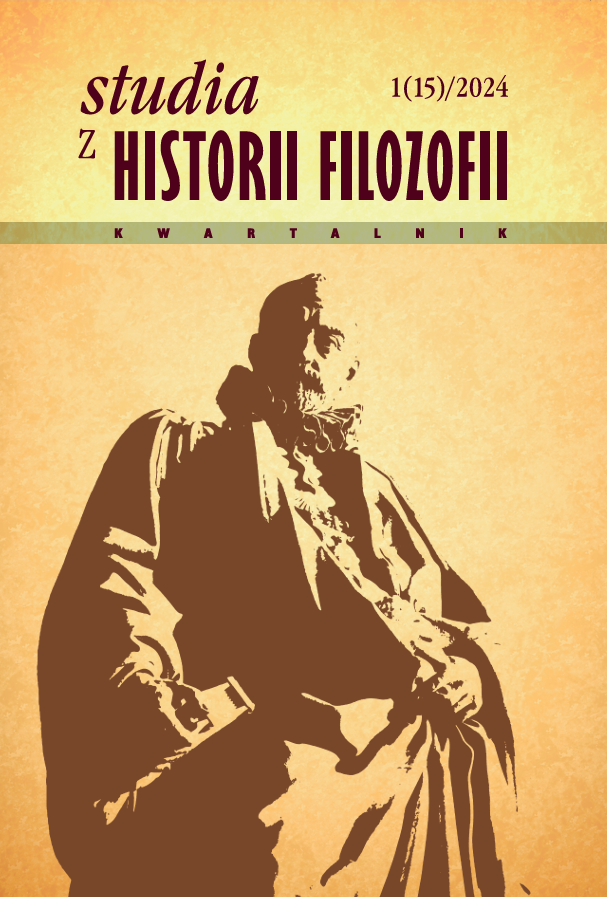The Philosophy of Antisthenes as Therapy in Xenophon’s Symposium
DOI:
https://doi.org/10.12775/szhf.2024.003Keywords
philosophical therapy, the art of living, Socrates, Antisthenes, arete, enkrateia, eleutheria, autarkiaAbstract
This paper shows the philosophy of Antisthenes of Athens described in Xenophon’s Symposium as a philosophical therapy closely connected with the Socrates’ model also presented in Xenophon’s writings. Antisthenes developed the basic concepts of Socrates’ ethics, like arete, enkrateia, eleutheria and autarkia, giving them a specific radical dimension. This decisive radicalization was Antisthenes’s reaction to the then deep moral crisis which, like his master, he tried to remedy by offering the only proper medicine – philosophy. It was, above all, a practical philosophy that showed a man how to live in order to be able to call his existence, following Socrates, “a life worth living”. The philosophical thought of Antisthenes presented in Xenophon’s Symposium is a peculiar therapy of human souls, and the philosopher himself can therefore be described as a “physician of the soul” (iatros psyches). Since Antisthenes perfectly recognized the state of a special kind of intoxication deeply embedded in society and its addiction to inborn impulses and instincts, as well as attachment to irrational traditions and customs, and his treatment, with the help of philosophy, boiled down to a thorough return to rationality, rejection of excessive bodily desires, and continuous shaping of one’s own personality through work on oneself and practicing virtue.
References
Chroust Anton H. 1957. Socrates, Man and Myth. London: Routledge & K. Paul.
Grube George M. A. 1981. Plato. Five Dialogues: Euthyphro, Apology, Crito, Meno, Phaedo. Cambridge: Hackett Publishing Company.
Marchant Edgar C., Otis J. Todd. 1923. Xenophon. Memorabilia, Oeconomicuus, Symposium, Apology. Cambridge–-London: Harvard University Press.
Navia Luis E. 2001. Antisthenes of Athens. Setting the World Alright. Westport–-London: Greenwood Press.
Nussbaum Martha. 2018. The Therapy of Desire. Theory and Practice in Hellenistic Ethics. New Jersey–Oxford: Princeton University Press.
Rankin Herbert D. 1986. Antisthenes Sokratikos. Amsterdam: Hakkert.
Suvak Vladislav. 2014. "“Antisthenes between Diogenes and Socrates”". In: Vladislav Suvak, Antisthenica Cynica Socratica, 72–-120. Praha: Oikoumene.
Suvak Vladislav. 2018. "“Socratic Therapy: Antisthenes”". Philosophia 48: 85–-98.
Tymura Dorota. 2017. Sokrates Ksenofonta. Lublin: Wydawnictwo Uniwersytetu Marii-Curie-Skłodowskiej.
Wesoły Marian. 2011. “Sedno życia i filozoficznego wyzwania Sokratesa”. Peitho. Examina antiqua 1(2): 93–109.
Yonge Charles D., Keith Seddon. 2008. An Outline of Cynic Philosophy: Antisthenes of Athens and Diogenes of Sinope in Diogenes Laertius Book Six, Constantia: Lulu.
Downloads
Published
How to Cite
Issue
Section
License

This work is licensed under a Creative Commons Attribution-NoDerivatives 4.0 International License.
Stats
Number of views and downloads: 745
Number of citations: 0



